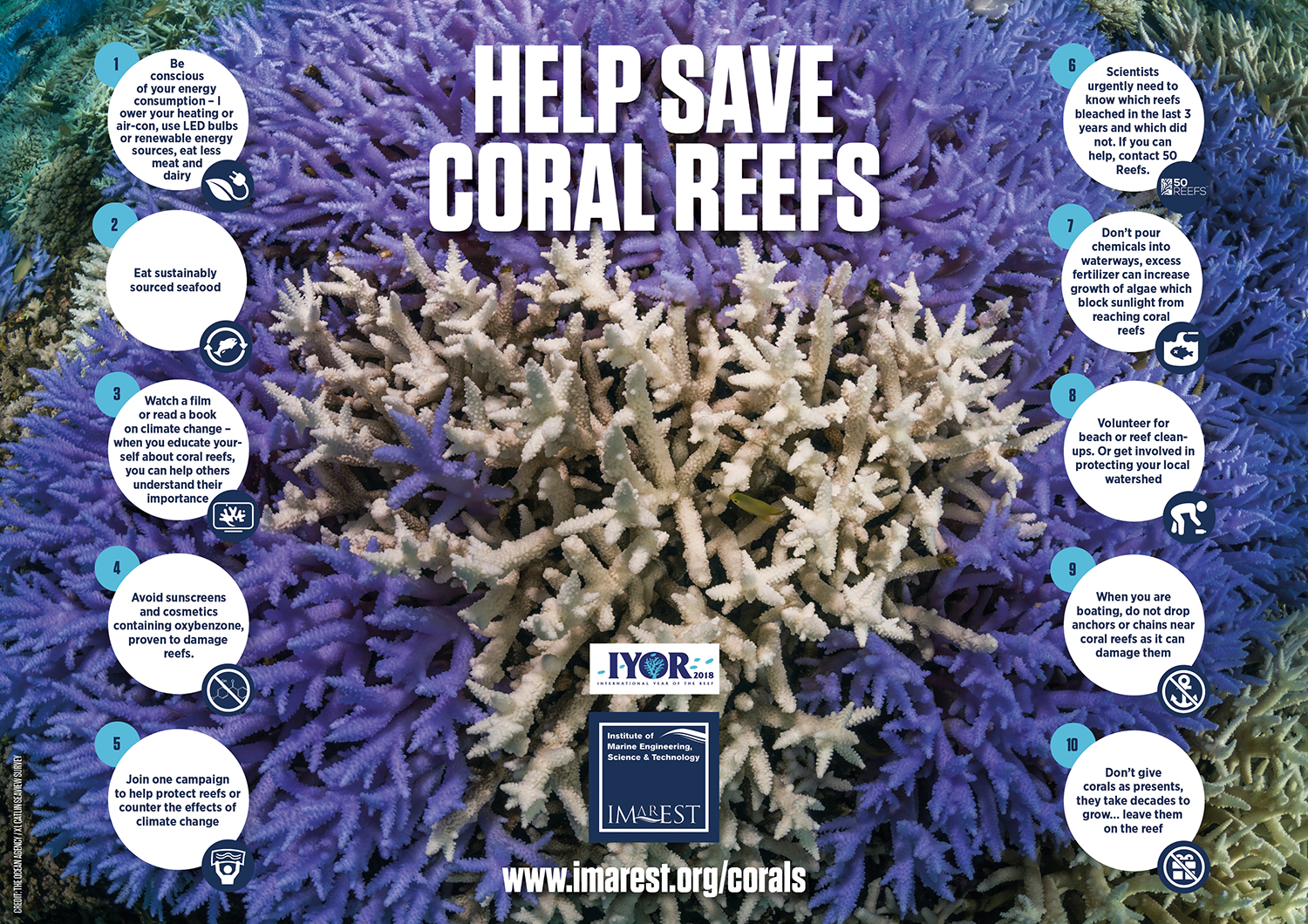Students report and summarize the data from the. This activity allows students to use authentic scientific data to make claims about the threat of coral bleaching for reefs around the world.
Climate Change Is Destroying Our Coral Reefs Here S How Scientists Plan To Save Them
Students download temperature and satellite data files for coral reef sites around the world.

Coral reefs and climate change. Climate change will affect coral reef ecosystems through sea level rise changes to the frequency and intensity of tropical storms and altered ocean circulation patterns. And their survey of 2500 Indo-Pacific reefs showed that coral responses to global climate change may be changing as corals have different past experiences and tolerances to heat and stress. 00002022 and coral reefs to recognize that climate change is not the only thing.
Climate change is the utmost threat to coral reef ecosystems through sea surface warming and the alteration of seawater chemistry due to a decrease in pH more acidic. The combination of destructive fishing practices polluted water entering the ocean coastal development shipping - and climate change causing rapid ocean warming has led to mass coral death. Coral reefs could be dying out because of changes to the microbes that live in them just as much as from the direct rise in temperature caused by global warming according to scientists.
Coral bleaching and ocean acidification are two climate-related impacts to coral reefs O ne of the most important threats facing coral reefs on a global scale is a big one. When combined all of these impacts dramatically alter ecosystem function as well as the goods and services coral reef ecosystems provide to people around the globe. Coral reefs are highly dynamic ecosystems that are regularly exposed to natural perturbations.
Human activities have increased the range intensity and frequency of disturbance to reefs. Human activities have increased the range intensity and. The first global scientific assessment of climate change impacts on World Heritage coral reefs published in 2017 by UNESCO predicts that the coral reefs in all 29 reef-containing World Heritage sites would cease to exist as functioning coral reef ecosystems by the end of this century if humans continue to emit greenhouse gases under a business-as-usual scenario.
What are the threats to coral reefs. This finding along with data to suggest that corals have already adapted to part of the warming that has occurred so far is part of a study funded by NOAA. Over the last three decades the world has lost half of its reefs.
Anthropogenic climate change poses a serious threat to coral reefs around the world. It is now agreed by coral reef scientists around the world that the marine environment in general and coral reefs in particular are being adversely affected by climate change. 00002413 thats happening to coral reefs today 00002526 there is a coral reef crisis its both local and global 00003000 and its caused by a variety of things in addition to climate change.
Threats such as overfishing and pollution are being compounded by climate change notably warming and ocean acid. Coral reefs are highly dynamic ecosystems that are regularly exposed to natural perturbations. The effects of global climate change will combine with more localized stresses to further degrade coral reef ecosystems.
Coral reefs may be able to adapt to moderate climate warming and improve their chance of surviving through the end of this century if there are large reductions in carbon dioxide emissions. Scientists agree that climate change is real and this spells real trouble for the worlds coral reefs. The ocean warming and increased atmospheric CO2 are due to human induced greenhouse gas emissions.
They then graph and analyze the data for one coral reef location. The Great Barrier Reef. Mass coral bleaching a global problem triggered by climate change occurs when unnaturally hot ocean water destroys a reefs colorful algae leaving the coral to starve.
Corals and Climate Change. Part 1 and Part 2 The California Academy of Sciences Science News Team brings you this two-part report on scientists studying the impacts of warming temperatures on corals and how some corals might be able to survive and adapt to these changes. The impacts of global warming can be isolated by studying long-lived corals growing on.
Although climate change itself will adversely affect coral reefs it will also increase the susceptibility of reef communities to degradation and loss resulting from natural climate variability such as El Niño events as well as disease over-fishing disruption of food webs and pollution from.

